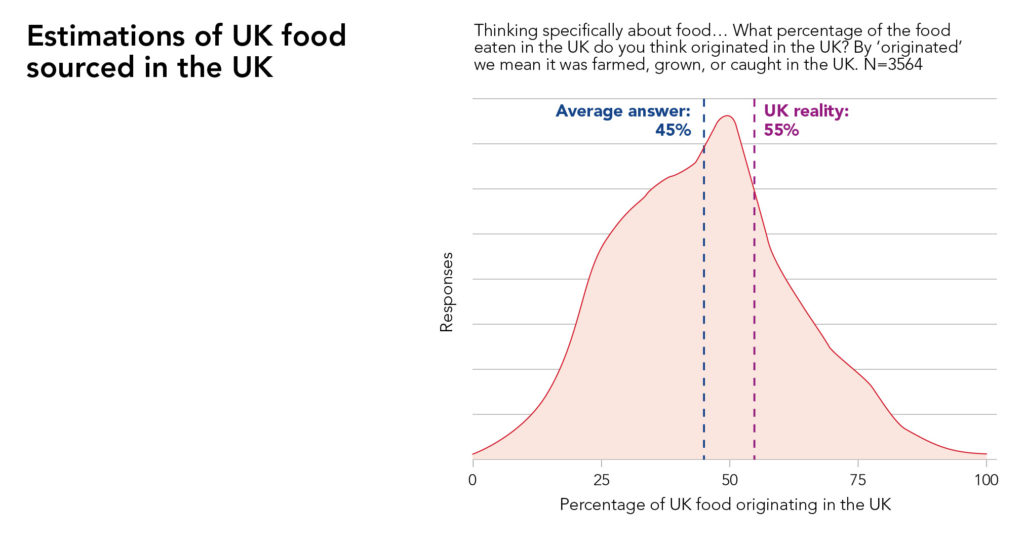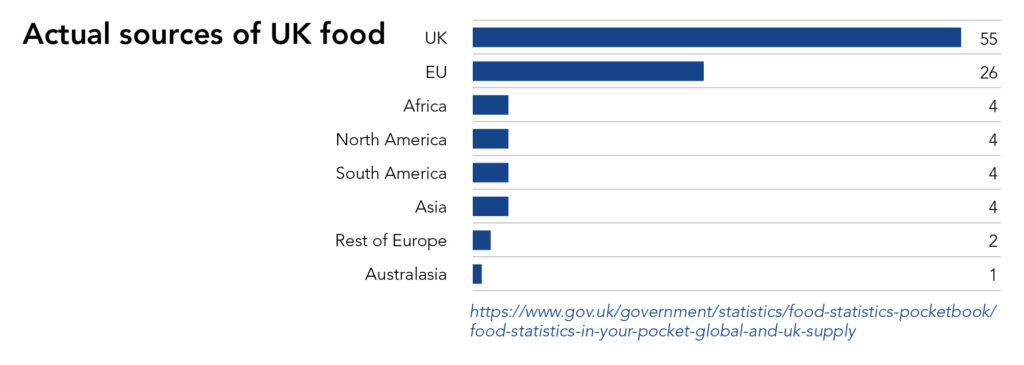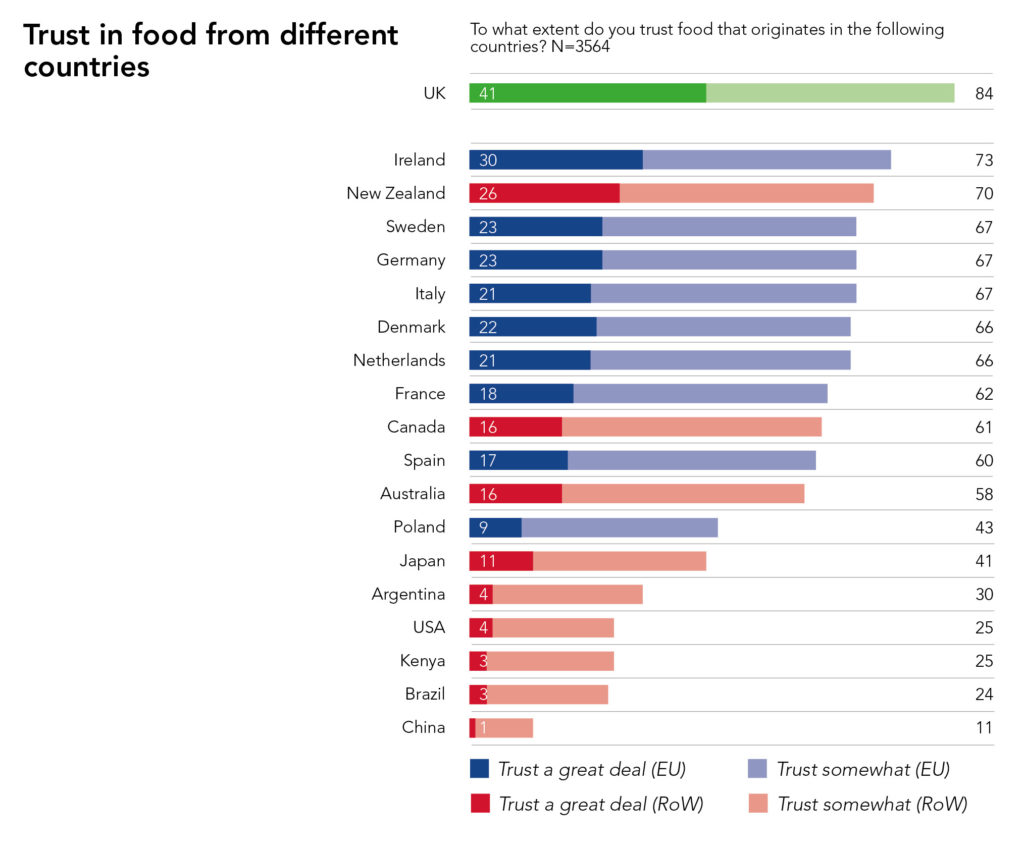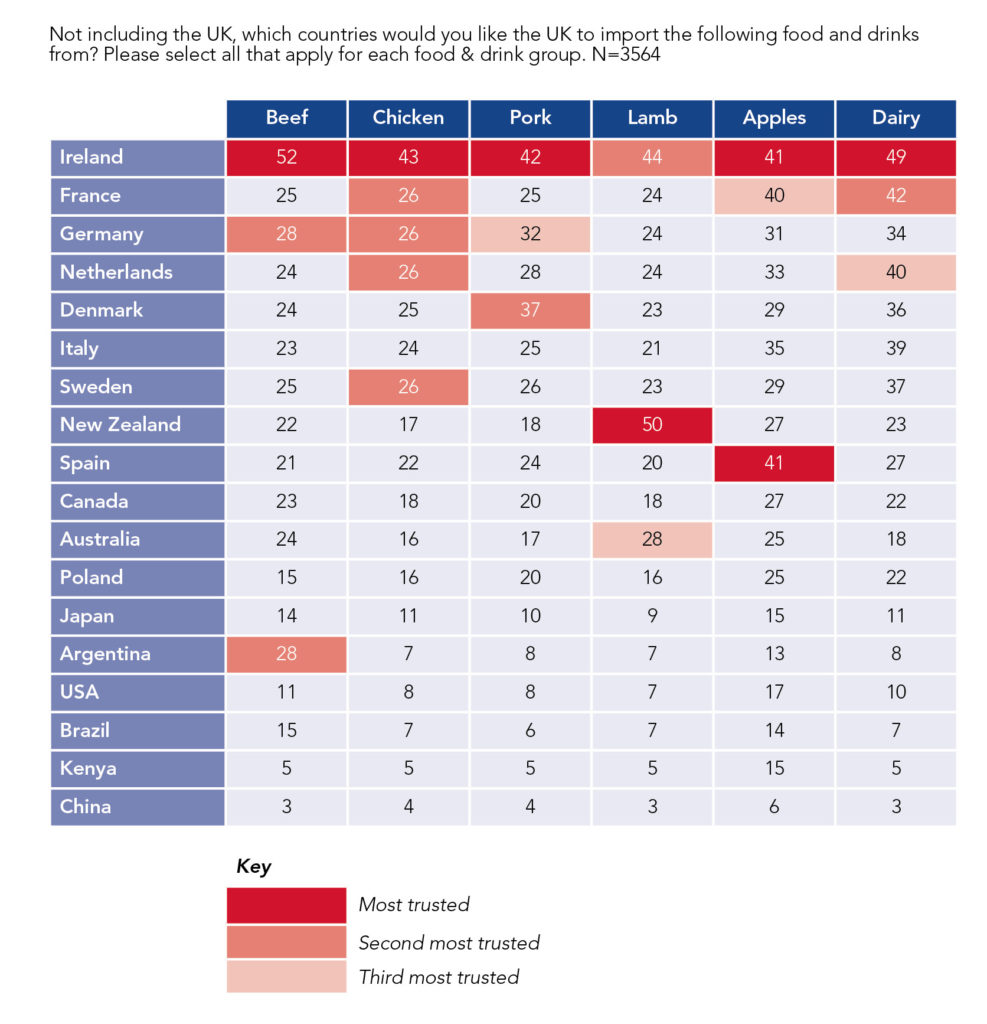

Despite their high level of trust in food in the UK and originating from the UK, many people are unaware of how much of our food originates here.
On average, the public thinks 45% of our food comes from the UK, compared to the official government data showing the figure is 55%.
There was significant variation in respondents’ answers on this topic, showing that the public has little idea how much of the food they consume the UK produces.
A third of the population guessed lower than 40% and 16% higher than 60%. Only 31% of the population guessed within 10% of the correct figure.
People over the age of 65 are more likely to get it right than anyone younger. There’s no difference in the accuracy of the responses between men and women.


Generally speaking, the closer to home a food product is made the higher the levels of trust in that product.
Levels of trust in food from the EU remain high. This is especially the case for food produced in Ireland, which tops the table as the most trusted exporter of food to the UK. After Ireland, the major western EU countries are all trusted similarly, and more highly that the rest of the world. Poland is the outlier, with much lower levels of trust.
Of the rest of the world, New Zealand is the most highly trusted, followed by other major Commonwealth nations – Canada and Australia. Again, this likely reflects close cultural, historical, and social ties.
The USA is comparatively little trusted – only 25% total trust – alongside Kenya and Brazil. China is the least trusted of all the countries respondents were asked about.
The varying levels of trust in food from different countries raises significant questions and challenges for future UK trade policy. It also suggests that in a post-Brexit world, there may be increased importance placed on the presence of assurances scheme logos on food products in order to reassure consumers that what they are buying can be trusted.

Trust for imported food varies across foodstuffs.
Beef – Irish foodstuffs are well trusted across the board, though Ireland is particularly highly trusted for beef. The reputation of Argentinian steak pushes it much higher than we see for other Argentinian produce, but the overall levels of trust are still fairly low.
Pork – Denmark has a strong reputation for pork products which is reflected in the relative enthusiasm for those imports. Trust in German pork is also relatively high, perhaps because of an association with the sausage meats for which Germany is famed.
Lamb – Lamb is the only foodstuff where Ireland is not the most trusted country. Instead, New Zealand takes the top spot, as familiarity with New Zealand lamb shines through. Lamb is also the product that British people are most comfortable being imported from Australia.
Chicken – Trust in chicken produce largely follows the pattern of other meats, with Ireland on top followed by other large western EU states. There is no single country with a standout reputation for that particular meat, unlike pork (Denmark), beef (Argentina) or lamb (New Zealand). The USA gets a low score here, a possible reflection of the ongoing debate and concern about chlorinated chicken.
Apples – Apple imports have more consistent levels of trust than other foods. Consumers across the UK are generally more comfortable with the idea of fresh produce from mainland Europe than meat products from the same countries. We also see greater levels of confidence in apple imports from countries that have low levels of trust overall. For example, 25% of respondents were happy with the idea of apples from Poland and 15% happy with them coming from Kenya – a higher score than we see for any other product.
Dairy – Dairy scores are also generally higher than we see for meat products. France, Italy and the Netherlands all score more highly than they do for other products, possibly driven by their reputation for imported cheese or by proximity to one another (specifically in the case of France and the Netherlands.)
People in Scotland, and to a lesser extent in Wales, have a greater level of trust in food that originates from their own nation.
By contrast, people who live in England display very consistent levels of trust in food across the UK wherever it comes from.
The slight exception is Northern Ireland – people in England and to a certain extent those in Wales are slightly less trusting of food from Northern Ireland.


